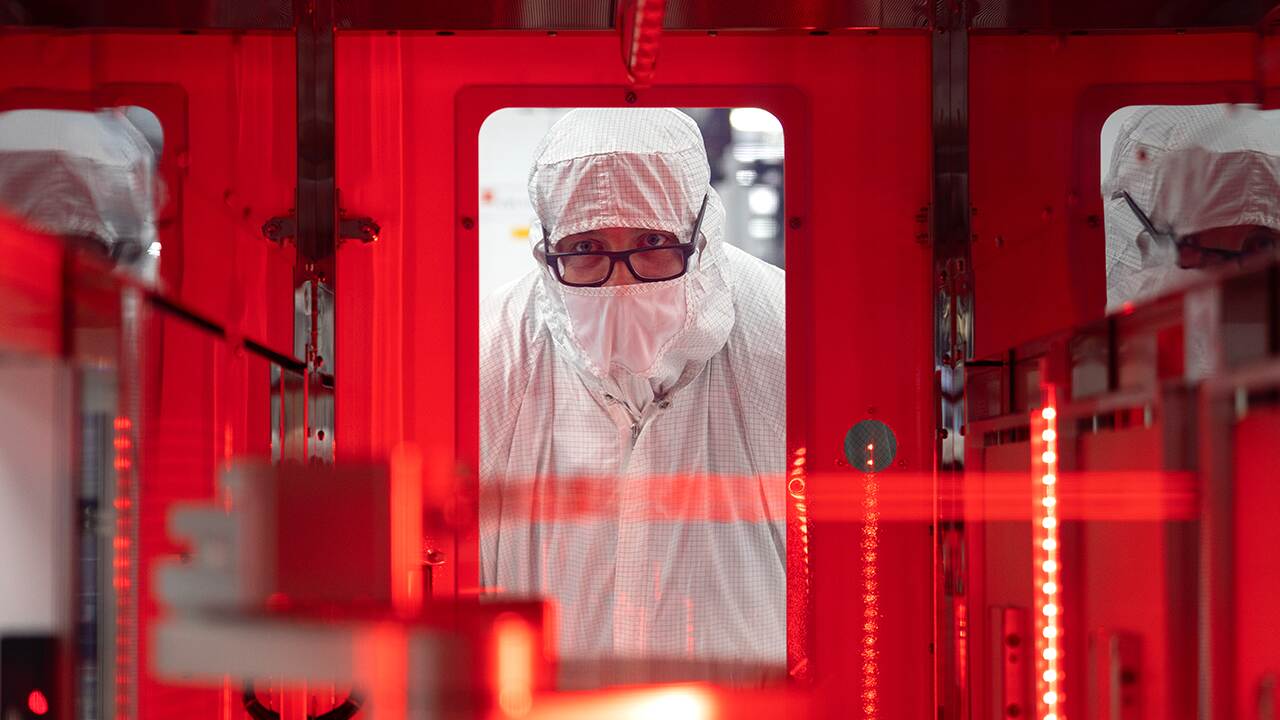The company will deploy seven factories in Texas and Utah, supported by companies like Apple, Ford, NVIDIA, and SpaceX.
Texas Instruments (TI) announced this week an ambitious investment exceeding $60 billion to expand its semiconductor production capacity in the United States. This is the largest investment in the country’s history for the manufacturing of analog and embedded processing chips, which are fundamental components in sectors like automotive, consumer electronics, healthcare, artificial intelligence, and satellite connectivity.
With this initiative, TI aims to solidify its leadership as the largest manufacturer of "foundational" semiconductors in the U.S., while responding to the growing global demand in a context of geopolitical tensions, reindustrialization, and technology sovereignty strategies led by the Trump administration.
A Long-Term Vision: Seven Factories and Over 60,000 Jobs
The ambitious plan includes the construction and expansion of seven factories (fabs) across three mega industrial sites located in Sherman and Richardson (Texas), and Lehi (Utah). Together, these industrial centers will enable the production of hundreds of millions of chips daily and support over 60,000 jobs in the U.S., both direct and indirect.
The most significant site is in Sherman, Texas, where TI is building four factories. The first two, SM1 and SM2, are already in development, while future factories SM3 and SM4 have been announced to meet anticipated medium- and long-term demand. In total, this site alone could absorb up to $40 billion in investment.
Richardson is home to TI’s second factory in the city, known as RFAB2, which complements the historic RFAB1, a global pioneer in the production of analog chips on 300 mm wafers. In Lehi, Utah, the company is accelerating production at LFAB1 and building LFAB2, both connected to optimize efficiency and scalability.
A Commitment Aligned with Major Tech Players
Texas Instruments’ expansion has received explicit backing from major multinationals that rely on its chips to innovate in their respective fields. Apple, Ford, Medtronic, NVIDIA, and SpaceX have all confirmed their commitment to TI’s strategy, emphasizing the importance of having a robust national supply chain.
Tim Cook, CEO of Apple, stated that the chips manufactured by TI in the U.S. "bring Apple products to life," valuing the collaboration as a means to create jobs, foster innovation, and strengthen advanced manufacturing.
Jim Farley, President and CEO of Ford, highlighted that 80% of their vehicles sold in the U.S. are assembled in the country, and that their collaboration with TI will help ensure a stable supply of critical components for the future of mobility.
In the healthcare sector, Medtronic has relied on TI to secure semiconductor supplies during the global chip crisis, a key element in the development of advanced medical technologies. Its President, Geoff Martha, emphasized TI’s role in ensuring continuity and enabling large-scale innovation.
NVIDIA, on the other hand, works with TI to boost advanced artificial intelligence infrastructure. Jensen Huang, CEO of NVIDIA, noted that both companies share the goal of "revitalizing American manufacturing" and collaborating on key products for the next generation of AI architectures.
SpaceX, which manufactures tens of thousands of Starlink kits a day, has also opted for TI’s U.S.-made semiconductors to ensure global connectivity through high-speed satellite networks. According to Gwynne Shotwell, President and COO of SpaceX, TI’s chips offer the performance and reliability needed to meet increasing global demand.
Institutional Support and National Strategy
From the U.S. Department of Commerce, Secretary Howard Lutnick celebrated the announcement as a pillar of the national strategy to reindustrialize the country. "TI is an iconic company in this nation. This investment reflects President Trump’s commitment to strengthening domestic manufacturing capacity, especially in essential areas like semiconductors," he stated.
In line with this strategy, the U.S. administration is intensifying its efforts to regain leadership in chip manufacturing against the backdrop of increasing global competition, particularly from Asia. This push is set against a rising distrust of China, cross-cutting trade restrictions, and a trend toward industrial reshoring.
An Investment Aiming at the Future of Technology
Texas Instruments is not only seeking to meet current demand but also to lay the foundations for the next 50 years of electronic innovation. With its new centers, TI will produce chips that will find their way into everyday devices—such as smartphones, vehicles, and household appliances—as well as cutting-edge technologies like AI systems, data centers, and space platforms.
"We are building reliable, low-cost capacity on 300 mm wafers to deliver analog and embedded processing chips that are essential for almost all electronic systems," explained Haviv Ilan, President and CEO of TI.
The company’s strategy reinforces its almost century-long legacy in the industry, focusing on local manufacturing, constant innovation, and energy efficiency—key elements in an industry that is preparing to scale at unprecedented rates.
With this move, Texas Instruments is solidifying its position as one of the most relevant players in the American industrial renaissance at a time when technology sovereignty has become a matter of national security.
Source: Texas Instrument

